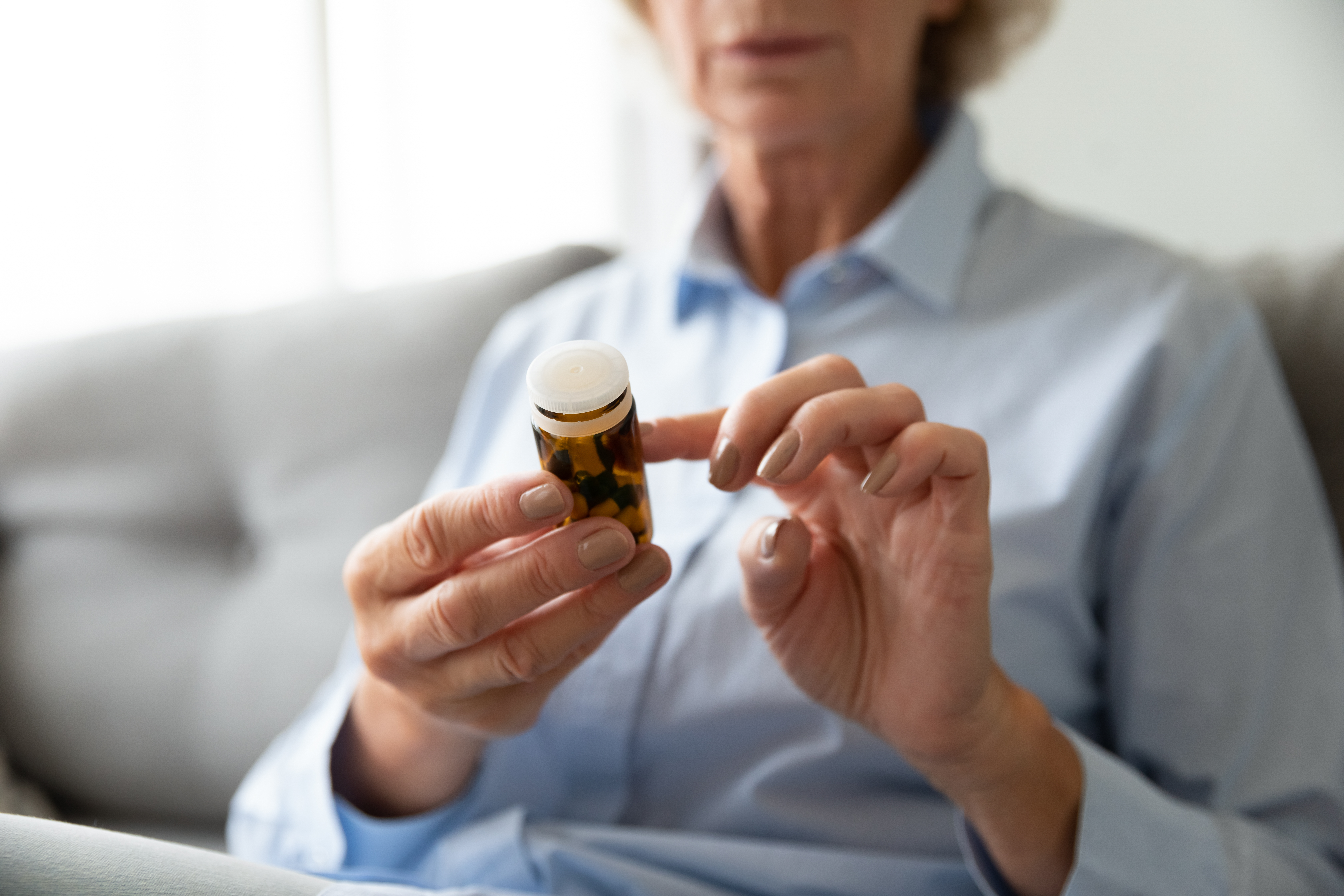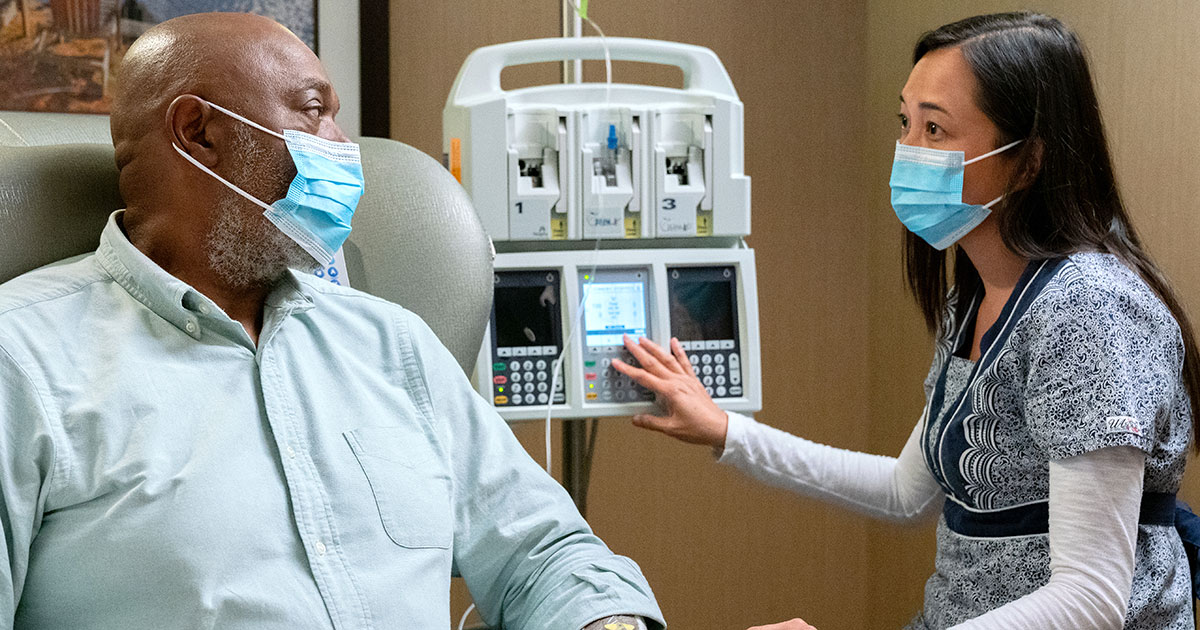Chemotherapy Drugs And Effects - Navigating Cancer Treatment
This article aims to shed light on the world of chemotherapy drugs and effects, providing a clear understanding of how these treatments work and the impact they can have on the body.
Author:Katharine TateReviewer:Karan EmeryMar 07, 20244.3K Shares69.5K Views

Chemotherapy drugs and effectsplay a crucial role in the battle against cancer. When someone hears the words "chemotherapy," it often sparks a mix of hope and concern. In simple terms, chemotherapy involves using powerful drugs to target and destroy rapidly dividing cells, including cancer cells. Here's a clear understanding of how these treatments work and the impact they can have on the body.
What Is Chemotherapy?
Chemotherapy, often referred to as "chemo," is a powerful medical treatment designed to combat cancer. The primary purpose of chemotherapy is to eliminate or control the growth of cancer cells within the body. This form of treatment is part of a broader strategy to either cure cancer, slow its progression, or alleviate symptoms.
Key Goals Of Chemotherapy
- Destroying Cancer Cells -The main objective of chemotherapy is to target and kill cancer cells. By disrupting their ability to divide and grow, chemotherapy aims to eradicate these abnormal cells from the body.
- Halting Cancer Spread -Chemotherapy is crucial in preventing the spread of cancer to other parts of the body. It helps contain the disease and restrict its impact on surrounding tissues and organs.
- Shrinking Tumors -In cases where surgical removal of the tumor is challenging, chemotherapy is often used to shrink tumors. This reduction in size can facilitate surgical intervention or make the cancer more manageable.
- Preventing Recurrence -After surgery or other initial treatments, chemotherapy may be employed to eliminate any remaining cancer cells and reduce the risk of cancer recurrence.
- Palliative Care -In situations where a cure may not be achievable, chemotherapy serves a palliative role. It aims to alleviate symptoms, improve the quality of life, and prolong survival for individuals with advanced or incurable cancers.
- Adjuvant Therapy -Chemotherapy is frequently used as adjuvant therapy after surgery or radiation to eliminate residual cancer cells. This helps minimize the chance of cancer recurrence.
- Combination Therapy -Often, chemotherapy drugs are used in combination to enhance their effectiveness. Combinations may target different aspects of cancer cells or work synergistically to achieve better outcomes.
Types Of Chemotherapy Drugs
Chemotherapy incorporates a diverse array of drugs, each strategically designed to disrupt the growth and division of cancer cells. These drugs fall into distinct classes, each characterized by a unique mechanism of action. A comprehensive understanding of these types is crucial for tailoring treatment plans to the specific nature of different cancers. Here are some primary categories:
- Alkylating Agents - Alkylating agents exert their therapeutic effects by attaching alkyl groups to DNA. This process interferes with the DNA strands, preventing cancer cells from dividing and reproducing. Notable examples of alkylating agents include cyclophosphamide and cisplatin.
- Antimetabolites - Antimetabolites disrupt the normal cellular functions by interfering with the synthesis of DNA and RNA. These drugs mimic essential substances required for these processes, hindering the growth of cancer cells. Common examples within this class are methotrexate and 5-fluorouracil (5-FU).
- Anthracyclines - Anthracyclines are renowned for their potent anti-cancer properties. They function by inhibiting DNA and RNA synthesis, making them effective against a broad spectrum of cancers. A well-known member of this class is doxorubicin.
- Topoisomerase Inhibitors - Topoisomerase inhibitors interfere with enzymes, specifically topoisomerases, crucial for DNA replication and repair. This disruption prevents cancer cells from successfully completing these processes. Examples of topoisomerase inhibitors include etoposide and irinotecan.
- Mitotic Inhibitors - Mitotic inhibitors target the process of cell division (mitosis). By disrupting the function of microtubules involved in cell division, these drugs prevent cancer cells from successfully completing this crucial step. Notable members of this class include paclitaxel and docetaxel.
- Immunomodulators - Immunomodulatory drugs enhance the body's immune response against cancer cells. By modifying the activity of the immune system, these drugs contribute to the eradication of cancer. Examples of immunomodulators include thalidomide and lenalidomide.
How They Work
Cell Cycle Disruption
Chemotherapy drugs often disrupt the cell cycle, which is the process by which cells grow and divide. These medications specifically target rapidly dividing cells, such as cancer cells, by interfering with different phases of the cell cycle. By doing so, chemotherapy inhibits the proliferation of cancer cells, ultimately leading to their death.
DNA Damage And Repair Inhibition
Many chemotherapy drugs induce DNA damage within cancer cells. This damage can take various forms, including DNA strand breaks, cross-links, and base modifications. Cancer cells, which typically have impaired DNA repair mechanisms, struggle to correct these errors effectively. As a result, the accumulated DNA damage triggers cell death pathways, leading to the demise of cancer cells.
Apoptosis Induction
Apoptosis, often referred to as programmed cell death, is a natural process by which cells self-destruct in response to specific signals or damage. Chemotherapy drugs can trigger apoptosis within cancer cells by activating intrinsic or extrinsic pathways. These pathways involve the activation of enzymes called caspases, which orchestrate the orderly dismantling of the cell. By promoting apoptosis, chemotherapy effectively eliminates cancer cells from the body.
Angiogenesis Inhibition
Tumors require a steady blood supply to fuel their growth and metastasis. Chemotherapy drugs can disrupt this process, known as angiogenesis, by inhibiting the formation of new blood vessels within tumors. By depriving tumors of oxygen and nutrients, chemotherapy impedes their ability to grow and spread, ultimately suppressing tumor progression.
Side Effects Of Chemotherapy
- Nausea And Vomiting - Chemotherapy can irritate the stomach lining, leading to nausea and vomiting. Antiemetic medications are often prescribed to manage these symptoms, but their effectiveness varies among individuals.
- Fatigue - Cancer-related fatigue is a prevalent side effect of chemotherapy. Patients may experience persistent tiredness and a lack of energy, impacting their daily activities. Adequate rest and activity management can help alleviate fatigue.
- Hair Loss (Alopecia) - Hair follicles, being rapidly dividing cells, are susceptible to the effects of chemotherapy. Hair loss is a common side effect, and it can occur on the scalp, eyebrows, eyelashes, and other body hair. Hair typically grows back after the completion of treatment.
- Bone Marrow Suppression - Chemotherapy can affect the bone marrow, where blood cells are produced. This may lead to decreased production of red blood cells (anemia), white blood cells (increasing the risk of infections), and platelets (resulting in easy bruising and bleeding).
- Neuropathy - Some chemotherapy drugs can cause peripheral neuropathy, resulting in tingling, numbness, or pain in the hands and feet. This condition may affect fine motor skills and coordination.
- Changes In Appetite - Chemotherapy may impact taste and smell receptors, leading to changes in appetite. Patients might experience a metallic taste in the mouth or a lack of interest in food.
- Gastrointestinal Issues - Chemotherapy can irritate the digestive system, causing diarrhea or constipation. It may also lead to mouth sores, known as mucositis, making eating and swallowing uncomfortable.
- Skin And Nail Changes - Some chemotherapy drugs can cause skin reactions, such as dryness, rash, or increased sensitivity to sunlight. Nail changes, such as discoloration or brittleness, are also possible.
- Cognitive Impairment (Chemobrain) - Some individuals undergoing chemotherapy report cognitive changes, often referred to as "chemobrain." This may involve difficulties with memory, concentration, and multitasking.
- Reproductive Issues - Chemotherapy can impact fertility, causing temporary or permanent changes. It is essential for individuals of childbearing age to discuss fertility preservation options before starting treatment.
Managing Side Effects
- Supportive Care - Providing comprehensive supportive care is essential to manage various side effects. This includes addressing nutritional needs, managing pain, and offering emotional support. Holistic care plans aim to enhance the overall quality of life during chemotherapy.
- Antiemetic Medications - To combat nausea and vomiting, antiemetic medications are commonly prescribed. These drugs help control and prevent these symptoms, allowing individuals to better tolerate their treatment.
- Growth Factors - In cases of bone marrow suppression leading to low blood cell counts, growth factors may be administered. These substances stimulate the production of blood cells, reducing the risk of anemia, infections, and bleeding.
- Pain Management - Patients experiencing chemotherapy-induced neuropathy or other pain-related side effects may benefit from pain management strategies. This can include medications, physical therapy, and alternative therapies like acupuncture.
- Nutritional Support - Maintaining proper nutrition is vital during chemotherapy. Dietary adjustments, nutritional supplements, and consultation with a registered dietitian can help address changes in appetite and support overall health.
- Activity Management - Balancing physical activity and rest is crucial for managing fatigue. Healthcare providers often recommend moderate exercise and adequate rest periods to combat cancer-related fatigue.
- Topical Treatments for Skin Issues - Skin reactions, such as dryness or rash, can be managed with topical treatments. Moisturizers and creams recommended by healthcare providers can soothe irritated skin.
- Dental Care - Oral health is crucial during chemotherapy to prevent and manage mouth sores (mucositis). Regular dental check-ups and diligent oral hygiene practices can help reduce the severity of these side effects.
- Cognitive Rehabilitation - Individuals experiencing cognitive changes, often referred to as "chemobrain," may benefit from cognitive rehabilitation programs. These programs aim to improve memory, concentration, and overall cognitive function.
- Fertility Preservation - For individuals of childbearing age, discussing fertility preservation options before starting chemotherapy is essential. This may include egg or sperm banking to preserve reproductive potential.
- Psychological Support - Coping with the emotional challenges of chemotherapy is vital. Support groups, counseling, and mental health services can provide individuals with the tools to navigate the emotional impact of cancer treatment.
Chemotherapy Drugs And Effects - FAQs
What Are The Most Serious Complications Of Chemotherapy?
For example, some types of chemotherapy may cause permanent damage to the heart, lungs, liver, kidneys, or reproductive system. And some people have trouble with thinking, concentrating, and memory for months or years after treatment. Cancer survivors also have a higher risk of second cancers later in life.
Is Chemo Toxic To The Body?
While providing many benefits, chemotherapy is strong, cytotoxic (toxic to cells) medicine, so it is safest for people without cancer to avoid direct contact with the drugs. Cancer (oncology) nurses and doctors often wear gloves, goggles, gowns or masks because they are exposed to chemotherapy drugs every day.
How Long Can Someone Stay On Chemo?
A course of chemotherapy usually lasts between 3 to 6 months, although it can be more or less than that. How often you have each cycle, and how long your treatment course lasts, depends on many factors. These include: type of cancer.
Final Thoughts
Learning about chemotherapy drugs and effects, as well as how they work, shows us that fighting cancer is a complicated process. We've seen the ways chemotherapy fights cancer cells and the side effects it can bring.
While it can be tough, chemotherapy has clear advantages in stopping cancer growth and improving a patient's chances. As science keeps progressing, new treatments are being developed to make chemotherapy even better and kinder. So, in the end, chemotherapy remains a crucial tool in the fight against cancer, bringing hope and healing to many people.

Katharine Tate
Author

Karan Emery
Reviewer
Latest Articles
Popular Articles

